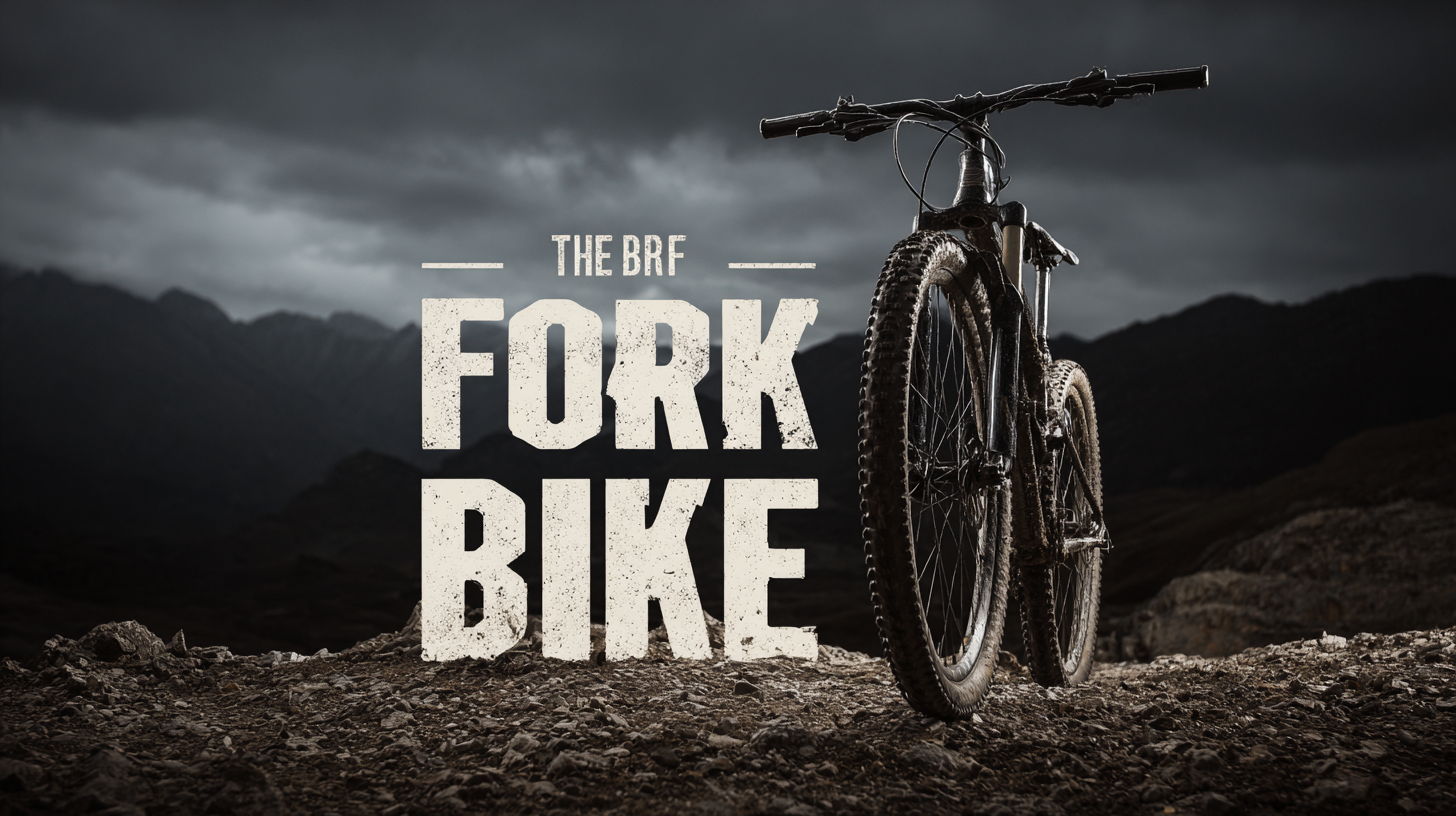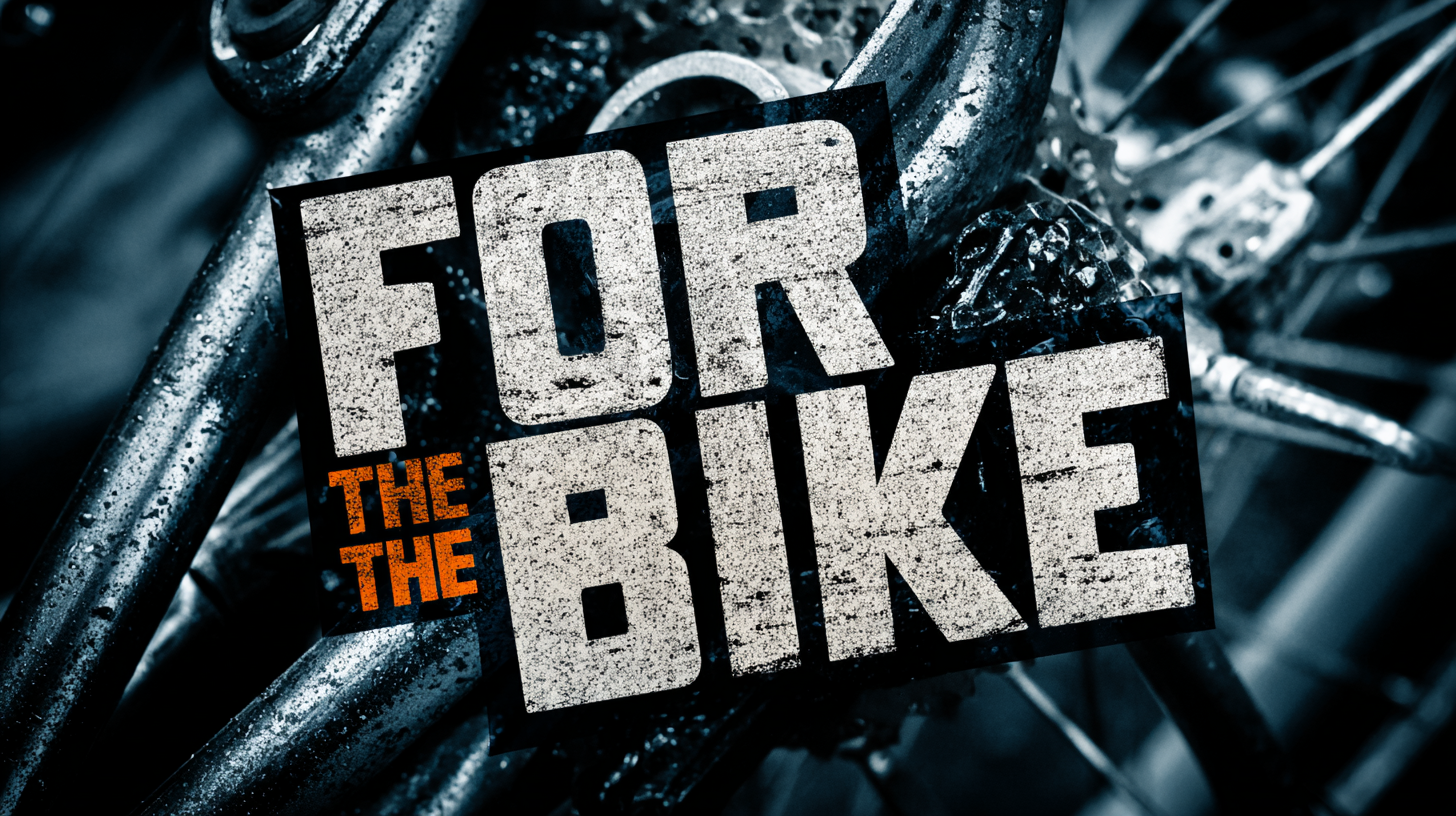When it comes to cycling, the "Fork of the Bike" plays a crucial role in ensuring both performance and safety. According to recent industry reports, approximately 15% of bike enthusiasts consider the fork as a primary factor when selecting their bicycles, highlighting its importance in impact absorption and maneuverability. Additionally, advancements in manufacturing technologies from world-class factories, particularly in China, have significantly improved the quality and durability of bike forks, appealing to a wider demographic of cyclists. With the right fork, cyclists can enhance their riding experience, whether for casual rides or competitive racing. This blog will delve into the advantages of choosing the best fork for your bicycle needs, showcasing how superior manufacturing processes contribute to better performance and overall satisfaction for riders.

Selecting the right fork for your bicycle is crucial for optimizing its performance on various terrains. A well-chosen fork can significantly enhance your bike's handling, stability, and overall ride quality. According to the National Bicycle Dealers Association, nearly 70% of cyclists report an increase in comfort and performance when they upgrade to a higher-quality fork. This underscores the importance of making an informed choice to match your riding style and the environment in which you'll be biking.
When considering fork options, factors such as material, travel length, and geometry come into play. A study published by the International Journal of Sports Sciences indicates that stiffness and weight of the fork contribute largely to energy efficiency. Cyclists using carbon fiber forks, for instance, can notice a 10-15% improvement in climbing efficiency due to reduced weight and increased stiffness compared to aluminum options. Furthermore, choosing the right fork can also reduce fatigue in long rides, making it essential for both casual riders and competitive cyclists alike to invest in the right equipment for their specific needs.
When it comes to selecting the best fork for your bicycle, understanding the different types and the respective advantages and disadvantages is crucial for optimizing your riding experience. Bicycle forks can generally be categorized into three primary types: rigid, suspended, and adjustable. Rigid forks are lightweight and ideal for road cycling, providing direct handling and efficient power transfer. On the contrary, suspended forks offer superior shock absorption, making them a popular choice for mountain bikers navigating rough terrains. A recent industry report highlights that around 75% of off-road cyclists prefer suspended forks for their enhanced performance on challenging trails.
Adjustable forks, which have gained traction in recent years, allow cyclists to modify their settings based on terrain and riding style. This adaptability can be particularly beneficial for hybrid riders who encounter a mix of on- and off-road conditions. However, these forks often come with added weight and complexity, which may not suit every cyclist's needs. The decision ultimately hinges on personal preferences and riding habits, but equipping your bicycle with the right fork can significantly enhance your comfort and performance on the road.

When it comes to enhancing your cycling experience, selecting the right fork for your bicycle is paramount. The material of the fork significantly affects ride quality and durability. For instance, lightweight materials such as carbon fiber can greatly improve responsiveness, allowing riders to maneuver more easily on rugged terrains. Conversely, aluminum forks tend to offer a balance between weight and strength, making them a popular choice for those seeking both performance and durability.
Different forks, such as those designed for mountain biking or gravel riding, showcase unique attributes that cater to various cycling styles. A robust fork can absorb shocks from rough paths, providing a smoother ride, while a more plush design can enhance comfort during extended journeys. Ultimately, understanding the crucial role that fork materials play in your bike’s performance can help you make an informed decision, ensuring that your cycling adventures are not only enjoyable but also safe and efficient.
| Fork Material | Weight (grams) | Ride Quality | Durability | Cost (USD) |
|---|---|---|---|---|
| Aluminum | 1400 | Moderate | Good | 100 |
| Carbon Fiber | 950 | Excellent | Very Good | 300 |
| Steel | 1600 | Good | Excellent | 150 |
| Titanium | 1300 | Very Good | Excellent | 600 |
As we look ahead to 2025, the bicycle industry is poised for exciting advancements in fork technology. With the trend toward lighter materials and improved aerodynamics, the demand for high-performance bicycle forks is set to rise sharply. Recent market reports indicate that the carbon fiber fork segment is expected to grow significantly, driven by the need for both competitive racing setups and recreational cycling. Innovations in manufacturing techniques, such as 3D printing and advanced composite molding, will contribute to the creation of forks that are not only lighter but also stronger and more responsive.

Moreover, the integration of smart technology into bicycle forks presents a transformative shift. In 2025, we anticipate forks equipped with sensors that monitor ride performance, fatigue, and even road conditions, providing cyclists with real-time data to enhance their experience. As the push for sustainability continues, eco-friendly materials will also play a crucial role in the design of future bicycle forks, aligning with broader industry initiatives focusing on reducing the carbon footprint. This convergence of technology and sustainability positions bicycle forks as a key area of innovation in the cycling sector, making it an exciting time for both manufacturers and consumers alike.
When selecting the perfect fork for your bicycle, it's essential to consider your riding style and the terrain you plan to tackle. According to a report by the Outdoor Industry Association, nearly 60% of cyclists prefer cycling on rugged trails or mountain paths, making the choice of fork crucial for performance and safety. For aggressive trail riders, a suspension fork with 120mm travel or more is often recommended to absorb shocks from rough terrain, while XC (cross-country) riders might opt for a lighter, rigid fork for better speed and efficiency.
Additionally, understanding the differences between materials can significantly impact your cycling experience. A survey by Bicycling Magazine indicates that carbon fiber forks are increasingly popular among competitive cyclists due to their lightweight properties, offering a stiffness that translates into better power transfer. Meanwhile, aluminum forks remain a solid choice for recreational riders, boasting durability and affordability. Ultimately, aligning your fork choice with your riding habits and the environment will enhance your cycling experience, allowing you to ride with confidence and comfort.
This chart illustrates the weight of different bicycle forks based on various riding styles. Lighter forks are more suitable for cross-country biking, while heavier forks may offer more durability and support for trail, all-mountain, and downhill biking.
